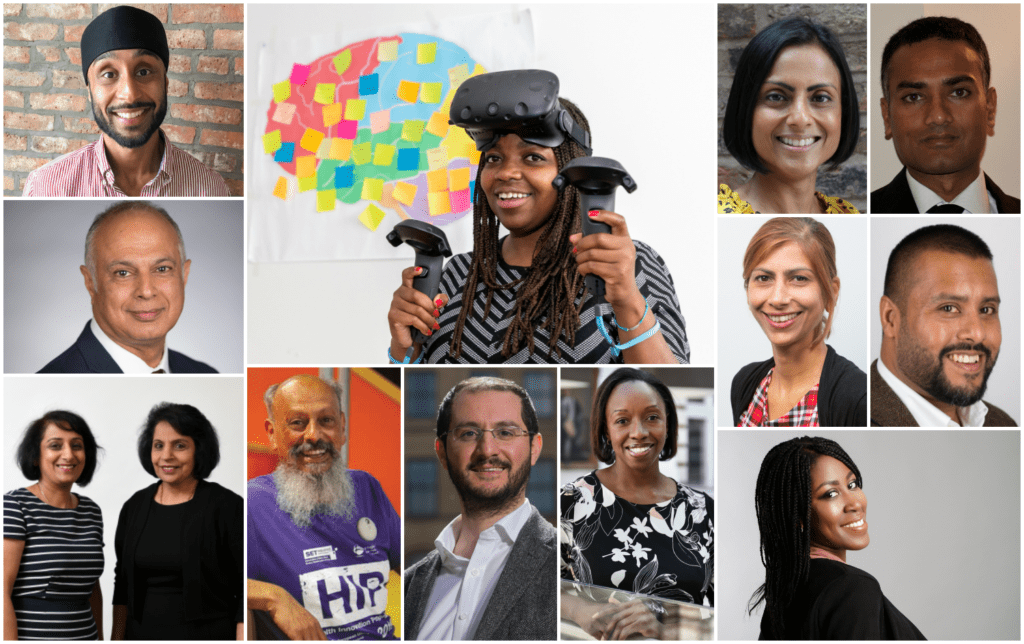Our NHS should represent and reflect the communities we serve. This does not just apply to our front line workforce. The way that we develop and adopt innovation and technology must also be based around our core mission to serve all our population, and to ensure that the transformation of our health service reduces, and not widens, health inequalities.
The business case for diversity is increasingly clear, and not just in healthcare. Across all economic sectors, there is a strong correlation between diversity within an organisation, particularly at board level, and improved business performance. And equally, there is evidence to show that non-diverse companies underperform financially.
Within the NHS the wider case for diversity at all levels has been firmly made, with some signs of modest progress in recent years. Roger Kline’s The Snowy White Peaks of the NHS (2014) shone a spotlight on the lack of progression made by BAME (Black, Asian and Minority Ethnic) staff into senior NHS leadership roles. The Workforce Race Equality Standard (WRES) now holds an effective mirror up to the service in terms of how we are closing the gaps between the treatment and opportunities for BAME and white staff.
The actions now being taken to rebalance and promote diversity across the NHS are as vital in supporting our innovation and transformation ambitions as they are in ensuring our workforce is fairly treated and representative.
The specific business case for diversity and innovation is well evidenced and important to understand as we look to delivery of the NHS Long Term Plan. If we are to transform the NHS for our next 70 years, with fundamentally disruptive innovation such as digital technology, genomics, and artificial intelligence (AI), then it is vital that our methodologies of transformation are influenced by, and available to, all our workforce. 19.1% of staff in the NHS identify as BAME. If we are not creating the conditions to be able to listen to and nurture transformative ideas from all our staff, then we are closing the door on one fifth of our potential future opportunities.
This challenge brings us back to the issue of diversity within leadership roles. Evidence from other sectors demonstrates that without diverse leadership, women are 20% less likely than straight white men to have their ideas taken seriously, while BAME staff are 24% and LGBTQ (lesbian, gay, bisexual, transgender and queer or questioning) staff are 21% less likely (Hewlett et al, 2013). ‘Inclusive innovation’ can refer to including people, places and industries in innovation processes, so bringing underrepresented groups such as women, BAME or LGBTQ communities into work in innovative sectors.
Inclusive innovation can also be understood as a product or service that addresses social issues, such as technological innovations to enhance mobility, or improvements that remove barriers to services (Klingler-Vidra, 2018).
We need to do both.
We will not succeed in addressing health inequalities without diverse innovators, both from within and outside of the NHS. We need innovators from all backgrounds who can develop and support solutions that enable the inclusion of all members of our society.
Research shows that when at least one member of a team has traits in common with the end user, the entire team better understands that user. A team with a member who shares a client’s ethnicity is 152% more likely than another team to understand that client (Hewlett et al, 2013).
Companies that take the initiative and actively increase the diversity of their management teams perform better. These companies find unconventional solutions to problems and generate more and better ideas, with a greater likelihood that some of them will become winning products and services in the market. As a result, they outperform their peers financially (Lorenzo et al, 2018).
Whilst much of the evidence is business focused, there are clear lessons for us in the health and care service. Diversity is key to the development of innovation that will reduce, not increase, inequalities, and support the transformation of the NHS for all our communities.
However, as we know, diversity does not simply happen. Both the WRES and the NHS People Plan are taking steps to improve the culture and development opportunities for our BAME staff as a whole. But as an AHSN Network, we recognise that we also have a leadership role to play in championing and developing the diversity within our NHS innovation pipeline.
That is why we are making some key pledges, as a national network that demonstrate our commitment to this agenda.
We will use these pledges to hold ourselves to account for the way that we identify and nurture innovation and the innovators behind them, both inside and outside the NHS. And we will publish our progress annually.
And, as always, we will work with our partners to achieve these ambitions. The AHSN Network is a proud sponsor of the NHS Confederation’s BAME Leaders Network (which inspired us to recognise how we could take a leadership role on this agenda). We also support the development of the NHS People Plan through the Leadership Development workstream, and we will work with new champions, such as the excellent Shuri Network, the first NHS network of BAME women in health tech and digital health.
Celebrating success and promoting role models are important aspects of this agenda. It is vital that aspirant would-be innovators who are starting out their journey in the NHS can see the success of people with whom they identify.
In our new Diversity and Innovation publication <link to RESOURCE NUMBER R10>, we proudly champion some of our BAME innovators who are making a difference now within the NHS, including Saadi Hussain who founded SmartMed, a digital platform for chronic conditions management, after visiting a remote clinic in Bangladesh. And Taz Aldawoud, a GP in Bradford who has developed Doc Abode, a digital primary care solution that, amongst many features, allows patients to be linked to out of hours clinicians who speak their native language.
There are many, many more.
We hope that by telling their stories loudly and proudly they will inspire others to follow in their wake. Our commitment as the AHSN Network is to ensure that the system listens to them and supports them when they do, for the benefit of all our patients.
- Download ‘Diversity and innovation’.
- Read the literature review by the National Centre for Diversity.

The government has set out three shifts it wants to see happen: treatment to prevention, hospital to community, analogue to digital. HealthTech has a crucial role in supporting the delivery of all three. But using technology to help deliver these changes requires procuring the technology, and when all the noise is about there being no [...]

Dr Anish Bhuva, is the founder of Pace MRI, a Consultant Cardiologist at Barts Heart Centre and an Associate Professor at University College London. Tell us about the innovation. What does it do, how does it help, who does it help and why is it important? Pace-MRI is an award-winning digital tool that manages complex [...]

As we celebrate International Women’s Day, Anna King, Commercial Director at Health Innovation Network South London, identifies how FemTech is 'Accelerating Action' in UK healthcare and driving economic growth. In recent years, FemTech - the sector focused on women’s health and wellness technology - has gained significant traction globally. In the UK, this growing sector [...]









